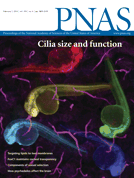
研究表明幼年虐待会阻碍大脑记忆重要区域海马体的发育。该研究对象是波士顿地区193位18-25岁的外观健康的成年人。研究结果发表在2月13日The Proceedings of the National Academy of Sciences杂志上。
海马体的发育受阻有助于解释童年压力为何会增加成年患精神疾病的风险,精神疾病包括抑郁症、精神分裂症、外伤性神经症到人格障碍、药物成瘾甚至自杀。
马萨诸塞州麦克林医院的Martin Teicher和同事通过标准的问卷调查揭示了志愿者幼年所遭受的虐待,并通过详细的核磁共振脑部扫描发现志愿者大脑海马体存在大小上的差异。
在那些幼年遭受过言语、身体或性虐待、身体或情感的忽视、丧亲、父母离异或不合的志愿者中可以观察到较大的差异。与没有遭过虐待的人相比,这些志愿者的大脑海马体的三个分区要小5.8-6.5%。
据了解,海马体的三个分区—齿状回,海马,下托—易受荷尔蒙压力的影响。在未成熟的大脑发育时,这就有可能阻碍细胞和新组织的形成。
Teicher的团队总结认为,这些发现支持了“人类或动物在幼年受到压力会影响海马体的发育”这个假说。他们说这项研究是目前在人类中进行的规模最大、最为详细的调查,这些结果在幼时遭受过压力的老鼠和猴子的海马体上也得到印证。
儿童虐待或贫困也可以通过称为“后生说”的过程改变大脑发育活跃的基因。这些改变会导致如精神分裂症和躁郁症等疾病。
Carmine Pariante说,幼年虐待就像是大脑经受外科手术攻击。他在伦敦大学国王学院精神病学学院研究压力对儿童发育的影响。“这解释了为什么个体在中老年时期会患有许多压力相关的疾病—因为他们处理压力的能力受损。”
杜克大学的 Terrie Moffitt说,“该研究表明幼时虐待遗留的伤害可以隐藏在机体里很多年,”“一旦我们明白幼时虐待带来的伤害多年之后会以记忆问题浮出水面,防止儿童虐待似乎是非常好的办法。”

Childhood maltreatment is associated with reduced volume in the hippocampal subfields CA3, dentate gyrus, and subiculum
Martin H. Teicher, Carl M. Anderson, and Ann Polcari
Childhood maltreatment or abuse is a major risk factor for mood, anxiety, substance abuse, psychotic, and personality disorders, and it is associated with reduced adult hippocampal volume, particularly on the left side. Translational studies show that the key consequences of stress exposure on the hippocampus are suppression of neurogenesis in the dentate gyrus (DG) and dendritic remodeling in the cornu ammonis (CA), particularly the CA3 subfield. The hypothesis that maltreatment is associated with volume reductions in 3-T MRI subfields containing the DG and CA3 was assessed and made practical by newly released automatic segmentation routines for FreeSurfer. The sample consisted of 193 unmedicated right-handed subjects (38% male, 21.9 ± 2.1 y of age) selected from the community. Maltreatment was quantified using the Adverse Childhood Experience study and Childhood Trauma Questionnaire scores. The strongest associations between maltreatment and volume were observed in the left CA2-CA3 and CA4-DG subfields, and were not mediated by histories of major depression or posttraumatic stress disorder. Comparing subjects with high vs. low scores on the Childhood Trauma Questionnaire and Adverse Childhood Experience study showed an average volume reduction of 6.3% and 6.1% in the left CA2-CA3 and CA4-DG, respectively. Volume reductions in the CA1 and fimbria were 44% and 60% smaller than in the CA2-CA3. Interestingly, maltreatment was associated with 4.2% and 4.3% reductions in the left presubiculum and subiculum, respectively. These findings support the hypothesis that exposure to early stress in humans, as in other animals, affects hippocampal subfield development.
文献链接:https://www.biodiscover.com/news/bioneuro/library/11087.html








